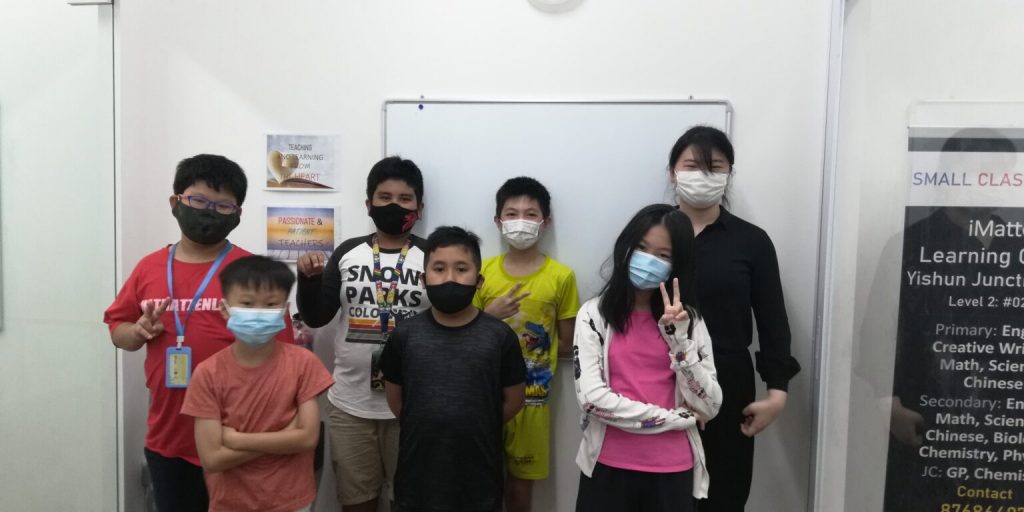First, this article is not a psychological report nor a scientific study about the reasons why students perform poorly in their studies. Instead, based on our experiences and observations spanning over two decades of teaching, we attempt to compile a list of factors that may lead to poor performance in school. There are presumably other factors not mentioned here so please forgive us for their exclusion.
Often, the factors overlap one another and the obvious one may not be the actual reason. Therefore, it pays to probe deeper to determine the root cause(s). All too frequent, concerned parents instinctively send their “underperforming” children to tuition or enrichment classes. While such classes have their place in education, they may not address the root cause(s) and thus do not solve the issue of underperformance. Sometimes, counselling, open communications or mutual adjustments in expectations may be more appropriate. Even though some suggestions are given below, this article does not aim to offer comprehensive guidance for intervention or resolution. Perhaps a future article will address this area.
Let us move ahead and look at these factors.
1. I don’t understand the subject
This is perhaps the most common reason cited by students. It is a valid reason though we should look deeper as to why there is a lack of understanding.
English language ability
This is an insidious factor, manifesting especially in Math and Science. Simply put, the student cannot understand the content and questions because of his weak grasp of the English language. Sometimes, this results in him being unable to express his answers correctly. Usually, he ends up going for tuition in Math and Science rather than focusing his efforts in improving his English.
Poor cognitive ability
There are indeed students who are gifted with superior cognitive ability, allowing them to understand new concepts as easily as breathing. While those with weaker cognition may be envious, it will be a lot more productive for them to go proactive and commit themselves to more study and practice.
Overwhelmed!
The sheer volume of material and/or lack of time can make any subject appear insurmountable. Effective time management and a positive mental attitude are critical for such overwhelmed students to maintain control of their studies.
Poor foundation
In our opinion, this is perhaps the most worrisome factor and possibly the hardest to solve. At some earlier point in his studies, the student has started to lag behind in the subject. At first, his results could have fallen unnoticeably. But by the time his drop in grades became significant, he could already have accumulated a few years of gaps in his understanding. We have seen Primary 6 students with the ability at only Primary 3 or 4 level. To cover these gaps, intense effort and much time are needed. Meanwhile, do not forget that the student still has to cope with the content of his current level. If rectification is not well handled, he will likely be permanently stuck in the rut, forever playing catching up.
2.Poor memory
Like cognitive ability, some students are gifted with a superb memory, recalling facts and figures with ease. For them, much time is saved as less revision is needed. Again, those students with poor memory should not feel envious or discouraged. Instead, they should research various methods to aid their memory and adopt those that suit them best.
3. Lack of interest and/or motivation
Like most factors discussed here, a lack of interest and/or motivation can be linked to one or more other factors e.g. poor foundation. It can also be a stand-alone factor in which case, open communication between the student and his parents is vital to synchronise one another’s expectations and to discuss the aspirations of the student. Remind the student that whatever aspirations he has, he will need to have a decent education to achieve them.
4. Unhealthy pressure from self and/or parents
To do well in studies, a healthy dose of pressure is necessary to inspire the student to excel. It is only when the pressure becomes unbearable that the point of diminishing returns has been crossed. Similar to a lack of interest and/or motivation, open communication between the student and his parents is helpful. If left unaddressed, this pressure may lead to poor on-site performance which is discussed below.
5. Laziness and procrastination
If this character trait is genuinely present and not a result of another underlying cause, there are various methods to overcome it. You can search online and try out the ones that appeal to the temperament of the student. Unfortunately, school and tuition are usually not the right platforms to solve this issue.
6. Irresponsibility
We are not sure this trait is characteristic of the millennial generation or a result of the prevalent YOLO (you only live once) culture. It basically means “I want to do things my way and I can’t be bothered with everything else.” Unsurprisingly, it usually comes with stubbornness and overconfidence. Thankfully, we do not see many of such students. Like most character traits, this is not something that can be reprimanded off. Any intervention will go into the student’s psyche, requiring time and effort.
7. Distractions
This is a BIG factor for today’s students. In general, distractions are beyond the ability of the educator to solve and external parties e.g. counsellors, may have to be engaged.
Confluence of the internet, mobile devices and computing
How often do we see students (and adults) glued to their mobile devices on the streets and in public transport? Though less visible, we believe many students are no less addicted to their computers at home. We have heard too many times from parents that their children are too attached to their mobile devices and yet, the parents are helpless against it. This topic merits an entire volume of discussion but suffice to say, it is a common factor contributing to students’ poor grades.
Gaming is treated as an addiction so various help groups have sprung up to help gamers quit their addiction. Parents may want to enrol their children in such programmes if the situation warrants it.
Social media is the flip side of the addiction coin. Instagram, Facebook, YouTube and many other apps waste countless hours that should have been put to good use. (We concede that studying is not the only good use of time. Voluntary work, exercise and self-improvement are worthy activities too.) There are many online suggestions, some of which involve more apps, to tackle this issue so we leave it up to parents to check them up and implement any if appropriate.
Other distractions
In our experience, family issues, financial issues, BGR (boy-girl relationship) and bullying can seriously affect a student’s studies. Imagine a student needing to work part-time to contribute to the family income. He ends up hardly having time for rest, much less his schoolwork. We have also seen situations turning extreme, for instance, in the case of students becoming suicidal due to BGR problems.
8. Poor on-site performance
Carelessness
This is a common problem. Miscalculations, misreading the question, missing an entire page in the assessment have all happened before and will continue to happen. An effective solution is to get the student to check his work before submission. This practice should not just be limited to tests and exams. It should become second nature by incorporating it into his daily work. Still cannot remember to do so? Wrap a reminder band around the wrist!
Anxiety and Stress
Let us face it, every student is naturally anxious or stressed when a test or exam is coming. However, it should not become so severe as to impair his ability to think during the assessment. The best way around this is for the student to prepare adequately and avoid any last-minute revision. Again, this practice is not something to be implemented only during assessment time. It should extend to his daily schoolwork through regular and systematic revision and completing his homework well ahead of time. Only then will the habit of adequate preparation be ingrained into the student.
It goes without saying that anxiety and stress during the assessment will increase the chances of carelessness so mitigating them to an acceptable level is useful. Try out breathing and visualisation techniques to mitigate them if the student is so inclined. Nevertheless, adequate preparation is key and any other measure should be supplementary.
Poor Time Management
Some parents and students tend to blame poor time management. If this is genuinely the issue, the problem can easily be solved by setting up a timeframe to complete the assessment. Let’s say the whole paper lasts one hour and Section A has a weightage of 40% while Section B takes up the remaining weightage. Simply allocate 24 minutes (includes checking) to Section A and 36 minutes (includes checking) to Section B. Start a stopwatch or timer to watch over the time and that is it.
Unfortunately, the issue is often not about time management. Instead, the student could have insufficient preparation for his assessment. For example, he might have lacked practice in questions from a particular math topic so naturally, he would need to spend more time interpreting the question and coming up with the right approach to solve it. Or he simply could not understand the question possibly due to his weak language ability and ended up spending too much time trying to figure out the question and the solution.
In Conclusion…
Summing up, it often pays for the parents or educator to probe into the challenges the student is facing in learning. If there are extenuating factors outside of the subject matter, tackle them first. Work with a counsellor if necessary. It is more effective than simply jumping on the tuition/enrichment bandwagon whenever the student’s grades go south.
iMatter Learning Centre

We offer group tuition to students in Yishun in English, Math, Science, Chinese, A Math, Biology, Chemistry and Physics from Primary to Secondary Levels, as well as Chemistry at JC Level. You can check out our schedule here.
In iMatter Learning Centre (imatter.com.sg), we believe in teaching and learning from the heart. Both tutor and student must put in effort for a favourable outcome. Every learner matters to us here so we engage only passionate and patient teachers who can relate to their students. In addition, our classes are intentionally made small to maximise group learning for the student and ensure effective delivery from the tutor.
You might be interested in






